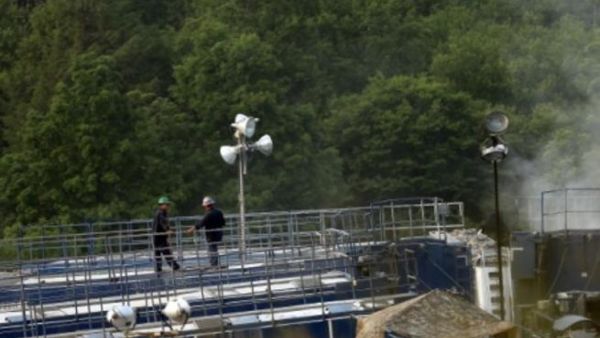Lebanon Tuesday officially launched the first oil and gas licensing round as officials warned that any delay in issuing the decrees by any new Cabinet could postpone the offshore drilling and exploration in the east Mediterranean.
“The energy minister is authorized to extend the bidding period [for a duration of time] equal to the time lost, if the two decrees are not issued by the Cabinet before Sept. 2,” caretaker Energy Minister Gebran Bassil told a news conference.
The decrees demarcating the 10 maritime exploration blocks and establishing a revenue-sharing model must be passed by the Cabinet before any contracts can be awarded.
Oil and gas supermajors are among the 46 international energy firms that prequalified earlier this month to bid for offshore hydrocarbon exploration contracts in Lebanon.
Bassil, however, said that if the political stalemate continued, President Michel Sleiman and Parliament Speaker Nabih Berri could authorize the caretaker Cabinet to pass the needed decrees if it was deemed a matter of high national interest.
Until September, the minister said, there would be a consultation phase whereby the companies discuss with the government the blocks on which they are interested in bidding.
During the first phase, all the blocks will be open for bidding, but the Petroleum Administration will decrease the number of blocks open for bidding and eventually award only a maximum of four blocks.
Bassil also said the completion of a taxation and revenue-sharing policy for the oil and gas sector was delayed.
“We have also drafted a preliminary proposal of the taxation policy which will require the passing of new laws; however, these may not be fully applicable during this licensing round,” he said.
Head of the Petroleum Administration Assem Abou Ibrahim told The Daily Star that limiting the first round to four blocks was aimed at improving the state’s position in future negotiations with oil and gas firms.
While the first round will carry high risks because the geology is not fully known to oil and gas companies and discoveries are not yet substantiated, risks will gradually decrease once discoveries are made, improving the state’s share of revenues.
Energy expert Rudi Baroudi echoed Abou Ibrahim’s views.
“The existence of oil and gas needs to be verified. Drilling offshore exploratory wells is the only way to test hydrocarbon potential in the Lebanese Basin,” he told the Central News Agency Monday.
“Several identified prospects could be small in size, in deep water locations, and would be uneconomic to drill and operate unless production from several nearby fields is combined,” he added.
But to Lebanon’s benefit, Baroudi added, the exploration success rate in the neighboring offshore Nile delta of Egypt is about 85 percent. Successes in Israel and Cyprus are also good news.
Government net share of revenues is expected to stand at 50 to 60 percent, the international average for oil and gas companies operating in deep water conditions similar to Lebanon, Abou Ibrahim told The Daily Star.
Asked why Lebanon had chosen to demarcate relatively large blocks ranging from 1,259 to 2,374 kms, Wissam Shbat, also a member of the administration, told The Daily Star the decision was based on a scientific method that took into consideration the high risk environment and was benchmarked against countries with a similar context.
“We are dealing with a case where drilling might happen to depths exceeding 2,000 meters and where the discovery of wells could cost well above $120 million,” he said adding that the size of the blocks aimed to reduce the risks involved with the drilling process in a bid to keep oil and gas companies’ interest.
But Shbat said Lebanon would be reclaiming 50 percent of the blocks following the five-year exploration phase, when their value would exponentially increase given improved knowledge of potential reserves.
The government’s share would then vary depending on the bid, the profitability of operations and production levels, Shbat explained.
“The Petroleum Administration will be selecting the highest ranking companies based on a model for each block that will weigh both technical and financial data,” he said.
During the news conference, Bassil also announced that seismic surveys were increasingly showing high prospects of oil discoveries off Lebanon’s coast, in addition to natural gas. He cited an initial estimate of around 145 million barrels of oil.








